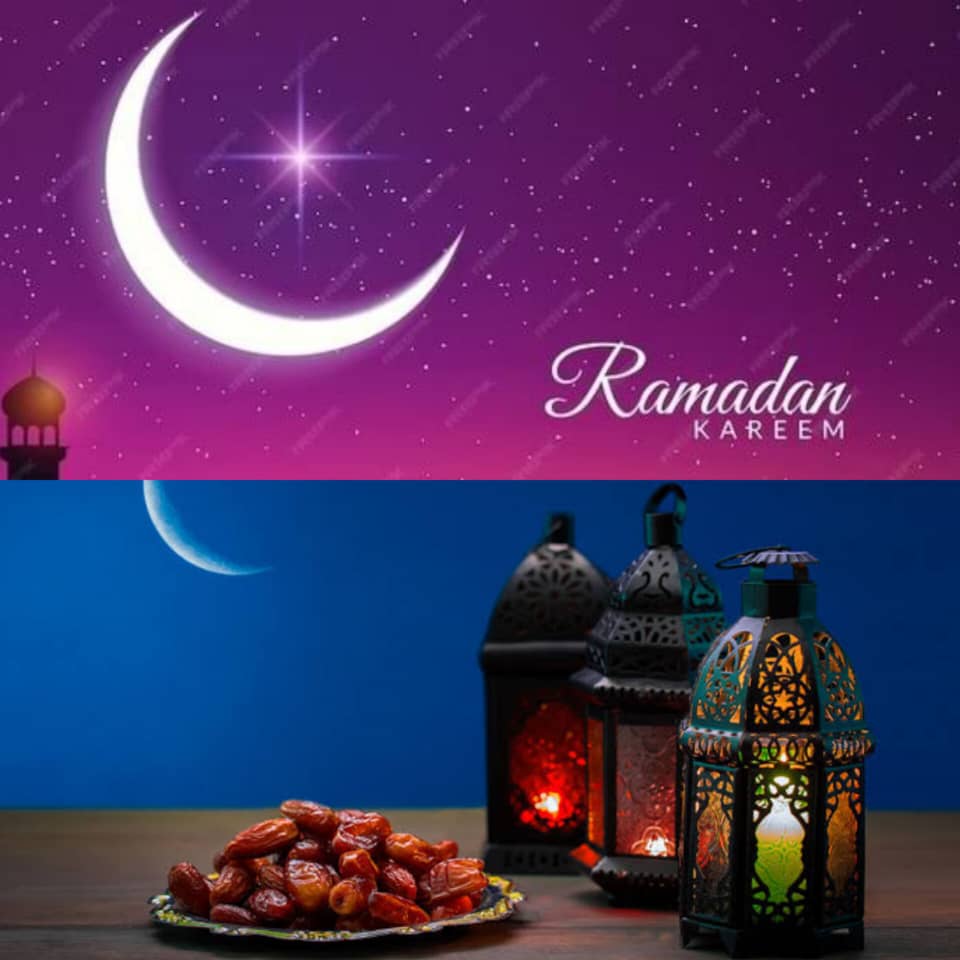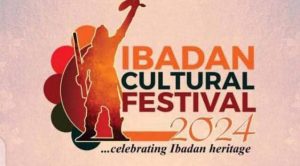


This is a compilation of common questions and answers related to Ramadan.
- When do we start Ramadan fast?
Ramadan fasting starts after the leader of the Muslims in any country announces the sighting of the moon.
If the moon is not seen on Sha’aban 29, then Sha’aban is counted to 30, and fasting begins the next day.
If the moon is sighted by Sunday evening of Sha’aban 29 = 10 March 2024, Ramadan starts the following Monday = 11 March 2024.
If the moon is not sighted on Sunday evening of 29 Sha’aban = 10 March 2024, Ramadan starts on the Tuesday = 12 March 2024.
- What breaks the fast?
*Intentionally eating or drinking breaks the fast.
*Eating by mistake does not break the fast, but one should stop eating and wash the mouth without swallowing.
*Having sex, including penetration or intentional ejaculation, breaks the fast.
Fasting consecutively for 2 months is required as a punishment for having sex during fasting.
Anything similar to eating, drinking, or having sex, including masturbation, breaks the fast.
Monthly period and Nifas (Parturition) blood also break the fast.
Cupping, letting blood, and deliberate vomiting also break the fast.
3. How many times did the Prophet (sallallaahu alayhi wa sallam) fast Ramadan? The Prophet (sallallaahualayhi wa sallam) fasted Ramadan for nine years.
4. Can I use Siwak (Chewing stick or toothbrush & Paste) during Ramadan?
It is permissible to use the Siwak stick or mouthwash and spit it out. Swallowing is forbidden.
5. Can I fast while traveling?
It is permissible to fast while traveling, and one may also choose not to fast while traveling and make up for the missed fast later.
6. Can I taste food during fasting when I cook?
Tasting food is permissible, but swallowing the tasted food is forbidden.
7. Can I take injections during fasting?
Injections of drugs are permissible if they do not contain nourishment.
8. From what time to what time do we fast?
Fasting is observed from the first light of dawn (Fajr) to the time of Maghrib (sunset).
9. When is the Sahoor taken and is it compulsory?
Sahoor is the meal taken before the first light of dawn by the one who is going to fast.
Taking Sahoor is not obligatory but a recommended action with blessings.
10. Can I take a bath while fasting?
Bathing is permissible while fasting, but one should avoid swallowing water.
11. Can Non-Muslims fast?
No, fasting is a pillar of Islam commanded to Muslims and is for Muslims only.
12. Can I fast without praying Salah?
Salah is the second Pillar of Islam after the Shahadatayn.
This pillar is greater than fasting Ramadan, as it will be the first deed to be checked on the day of resurrection.
One who does not perform Salah is considered a disbeliever, and fasting is not recommended for such a disbeliever in Allah.
13. Is the Taraweeh Compulsory?
No, Taraweeh is not compulsory but a confirmed Sunnah of the Prophet.
Muslims are encouraged to pray Taraweeh behind the Imam to earn great rewards in Ramadan.
If unable to pray with the Imam due to laziness or other excuses, it is recommended to at least pray two rak’ah then witr (one) on your own.
14. Can I follow the daily Night prayer (Nafilah) time table announced in our mosque during Ramadan?
There is no daily night prayer from the Prophet in Ramadan.
The accepted actions are those that originated from the Prophet of Allah.
It is encouraged to strive to do away with innovated actions in the worship of Allah and to pray Taraweeh with the Imam completely.
15. What beneficial acts should I do in Ramadan?
Ramadan is a month of good deeds and minimal bad deeds.
Beneficial acts to consider:
👉Recite the Qur’an as much as possible according to your ability. If unable to recite, at least listen to it or attend Sunnah Tafsirs gatherings.
👉Perform all the supererogatory (Nawafil) prayers: 4 Raka’h before Zuhr, 2 after Zuhr, 2 after Maghrib, 2 after Ishaa, and 2 before Fajr.
👉Recite the Morning and Evening Adhkars.
👉Recite any of the Adhkars from Sunnah.
👉Pray Taraweeh behind the Imam completely.
👉Avoid innovations and sins.
👉Perform Nawaafil at home every night, especially in the last ten days of Ramadan.
👉Make du’a greatly seeking the Night of Majesty at home or at best in seclusion in a mosque.
👉Give food to Muslims to fast and break the fast, which will multiply your fasts in rewards.
👉Zakat al Fitr should be given towards the last days of Ramadan to every Muslim.
👉Make lots of du’as from the Qur’an and Sunnah.
Some recommended Du’as!
· “Rabbana aatina fi’l-dunya hasanah wa fi’l-aakhirah hasanah wa qina ‘adhaab al-naar (Our Lord, give us that which is good in this world and that which is good in the Hereafter, and protect us from the torment of the Fire),” [al-Baqarah 2:201]
·“Rabbana hab lana min azwaajina wa dhurriyyaatina qurrata a‘yunin waj‘alna lil-muttaqeena imaama (Our Lord! Bestow on us from our wives and our offspring who will be the comfort of our eyes, and make us leaders for the Muttaqoon (the pious))” [al-Furqaan 25:74].
·“Rabb ij‘alni muqeema as-salaati wa min dhurriyyati Rabbana wa taqabbal du`a. Rabbana ighfir li wa li waalidayya wa lil-mu’mineena yawma yaqoom ul-hisaab (O my Lord! Make me one who performs As-Salat (Iqamat-as-Salat), and (also) from my offspring, our Lord! And accept my invocation. Our Lord! Forgive me and my parents, and (all) the believers on the Day when the reckoning will be established)” [Ibraaheem 14:40-41].
· Allahumma innaka ‘afuwwun tuhibb al-‘afwa fa’affu ‘anni(O Allah, You are forgiving and You love forgiveness, so forgive me).
Allahumma inni as’aluka min al-khayri kullihi ‘aajilihi wa aajilihi, ma ‘alimtu minhu wa ma lam a‘lam, wa a‘oodhu bika min ash-sharri kullihi ‘aajilihi wa aajilihi, ma ‘alimtu minhu wa ma lam a‘lam. Allahumma inni as’aluka min khayri ma sa’alaka ‘abduka wa nabiyyuka, wa a‘oodhu bika min sharri ma ‘aadha minhu ‘abduka wa nabiyyuka.
Allahumma inni as’aluka al-jannata wa ma qarraba ilayha min qawlin aw ‘amal, wa a‘oodhu bika min an-naari wa ma qarraba ilayha min qawlin aw ‘amal, wa as’aluka an taj‘ala kulla qada’in qadaytahu li khayran (O Allah, verily I ask you for all that is good in this world and the hereafter, what I know of it and what I do not know, and I seek refuge with You from all that is evil in this world and the hereafter, what I know of it and what I do not know.
O Allah, verily I ask You for the good of that which Your slave and Prophet asked of You, and I seek refuge with You from the evil of that from which Your slave and Prophet sought refuge with You.
O Allah, verily I ask you for Paradise and that which will bring me nearer to it of words and deeds, and I seek refuge with You from Hell and that which would bring me nearer to it of words and deeds. I ask You to make everything You decree for me good).
.Allahumma inni as’aluka al-‘aafiyata fi’d-dunya wa’l-aakhirah. Allahumma inni as’aluka al-‘afwa wa’l-‘aafiyata fi deeni wa dunyaaya wa ahli wa maali. Allahumma astur ‘awraati wa aamin raw‘aati.
Allahumma ihfazni min bayna yadayya wa min khalfi wa ‘an yameeni wa ‘an shimaali, wa min fawqi, wa a‘oodhu bi ‘azamatika an ughtaala min tahti (O Allah, I ask You for pardon and well-being in my religious and worldly affairs, my family and my wealth. O Allah, conceal my faults and protect me from that which causes me to worry.
O Allah, protect me from before me and from behind me, from my right and from my left, and from above me, and I seek refuge in Your greatness lest I be destroyed from beneath me).
May Allah accept it from us






